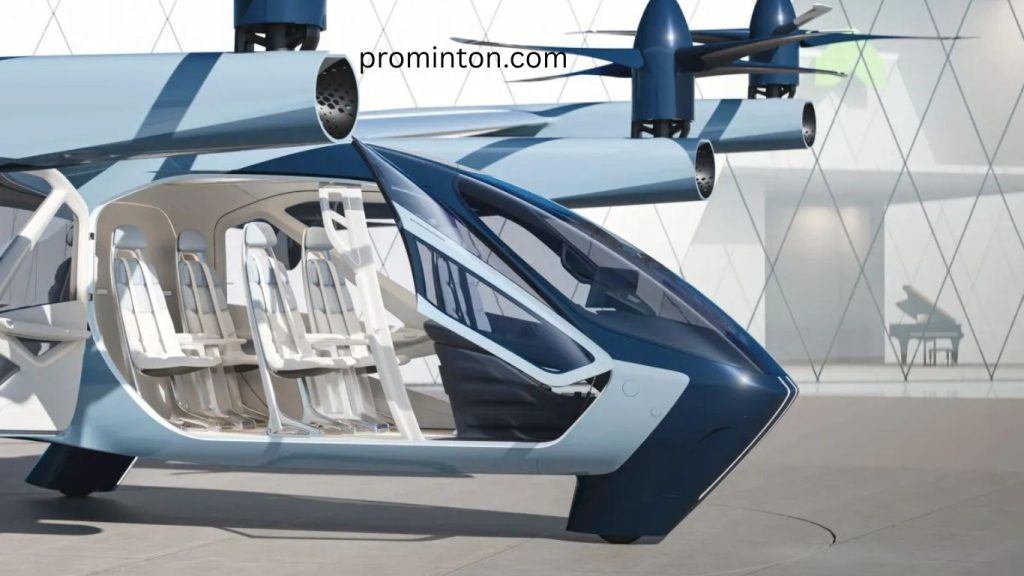The future of air travel has long fascinated innovators, investors, and governments alike. From the Wright brothers to the Apollo missions, aviation has always symbolized boldness, progress, and human ambition. Today, the spotlight is on electric vertical takeoff and landing (eVTOL) aircraft, more commonly referred to as air taxis. Seen as the next great leap in mobility, these futuristic vehicles promise to reshape how we commute, reduce traffic congestion, and redefine urban transport.
One of the biggest players in this emerging sector is Supernal, an electric air taxi startup owned by Hyundai Motor Group. However, the company is facing a period of turbulence. Just weeks after pausing its vehicle program and losing both its CEO, Jaiwon Shin, and CTO, Supernal has confirmed a broader leadership shake-up. Several senior executives, including its chief strategy officer, chief safety officer, and chief of staff, have now departed.
The question looms: Can Hyundai’s ambitious air taxi venture withstand this storm, or will the company’s dreams of leading advanced air mobility stall before takeoff?
Read More: NIC Karachi Triumphs: Inspiring 1st Anniversary Marks Graduation of 30 Trailblazing Startups
A Cascade of Executive Departures
The reshuffling at Supernal appears to be part of a wider restructuring effort aimed at aligning its future plans with long-term strategy. The company confirmed that Chief Strategy Officer (CSO) Jaeyong Song, Chief Safety Officer (CSO) Tracy Lamb, and Chief of Staff Lina Yang are no longer with the firm.
This news follows the earlier resignations of CEO Jaiwon Shin, who previously led Hyundai’s global aerospace efforts, and CTO Ben Diachun, both of whom played pivotal roles in shaping Supernal’s early direction.
Supernal issued a statement saying:
“As we transition to new leadership, we have taken the opportunity to strategically review our program’s progress and next steps to ensure alignment with our long-term goals.”
Despite these exits, Hyundai has emphasized that it remains committed to its Advanced Air Mobility (AAM) strategy, signaling that the shake-up does not mean an abandonment of the air taxi market.
Why Jaeyong Song’s Exit Matters
Among the departures, the resignation of Jaeyong Song stands out. Song had been deeply involved in Hyundai’s AAM vision for nearly a decade. Having joined the Hyundai-Kia group in 2014, he rose to prominence as vice president of Hyundai’s AAM division before becoming Supernal’s Chief Strategy Officer in 2023.
His leadership was considered instrumental in aligning Hyundai’s automotive expertise with its aerospace ambitions. Losing a figure so central to the strategy raises questions about whether the company is rethinking its roadmap—or facing deeper internal disagreements.
Meanwhile, Tracy Lamb’s departure is equally significant. With her extensive background as a commercial pilot and aviation safety executive, Lamb brought credibility and compliance expertise to a startup operating in a heavily regulated industry. Her exit may intensify scrutiny from regulators and industry watchers.
A Year of Highs and Lows
Supernal’s turbulent 2025 follows a string of challenges and milestones.
- Headquarters Closure: The startup ended 2024 by shutting down its Washington, D.C. headquarters—a move that shocked employees and signaled financial caution.
- First Test Flight: In March 2025, Supernal celebrated a breakthrough by successfully completing its first test flight, a crucial milestone for an eVTOL startup.
- Layoffs: Within months, however, the company laid off dozens of employees, pointing to financial pressures and program delays.
- Program Pause: In September 2025, Supernal paused development of its flagship air taxi program, citing the need for strategic reassessment.
This stop-and-go trajectory highlights the difficulty of balancing innovation, regulation, and financing in the AAM space.
Industry Context: A Market at a Crossroads
Supernal’s struggles are unfolding at a critical moment for the electric air mobility industry. The global market for eVTOL aircraft is projected to exceed $30 billion by 2035, with major players racing to secure regulatory approvals, partnerships, and investment.
- Winners Emerging: Companies like Joby Aviation, Archer Aviation, and Lilium are gaining traction, securing certification milestones, and striking deals with airlines and ride-sharing firms.
- Favorable Regulations: In the U.S., the Federal Aviation Administration (FAA) has signaled support for eVTOL certification pathways, which could accelerate commercial launches by the late 2020s.
- Industry Casualties: At the same time, smaller startups are folding under pressure, unable to meet high capital demands and long development timelines.
In this context, Supernal’s shake-up could either be seen as a necessary course correction—or a red flag that it is falling behind its competitors.
Hyundai’s Commitment: Realignment or Retreat?
Despite the turbulence, Hyundai insists it is not pulling back. The company has invested heavily in Supernal since spinning it out of its AAM division in 2021. Hyundai envisions a future where its cars, air taxis, and smart mobility platforms integrate seamlessly.
Hyundai’s global scale and deep R&D capabilities give Supernal advantages over smaller startups. Yet, the recent leadership exodus raises questions:
- Is Hyundai recalibrating its timeline for commercialization?
- Will it double down with fresh leadership, or scale back investments quietly?
- Can the company maintain employee morale and public confidence after repeated disruptions?
The answers may shape not only Supernal’s future, but also Hyundai’s reputation as an innovation-driven automaker.
Challenges Ahead for Supernal
For Supernal to regain momentum, it must overcome several hurdles:
- Leadership Stability: Appointing a strong new CEO and senior team will be essential to restoring confidence.
- Funding and Resources: eVTOL development is capital-intensive, often requiring billions before commercial launch. Sustained financial backing is non-negotiable.
- Regulatory Navigation: With aviation authorities tightening safety requirements, regulatory expertise will be critical—making the departure of a safety chief particularly risky.
- Competition Pressure: Rivals are moving swiftly, forming airline partnerships and planning commercial rollouts by 2026–2028. Supernal cannot afford to lag too far behind.
- Public Perception: Each shake-up fuels skepticism. To attract customers, partners, and investors, Supernal must project stability and vision.
The Bigger Picture: Can eVTOLs Truly Take Off?
The excitement around air taxis is matched by skepticism. Advocates see them as a green mobility revolution, reducing urban congestion, emissions, and travel times. Critics argue that:
- Infrastructure such as “vertiports” remains underdeveloped.
- Battery technology may not yet meet range and safety needs.
- Ticket prices could initially be too high for mass adoption.
Still, momentum is undeniable. Governments are funding pilot projects, airlines are pre-ordering fleets, and venture capital continues to flow into promising ventures.
Supernal’s success—or failure—will not only affect Hyundai but could also serve as a bellwether for whether automakers can compete with pure-play aerospace startups.
Frequently Asked Questions:
What is happening at Hyundai’s air taxi startup Supernal?
Supernal is undergoing a major leadership shake-up following the departure of its CEO, CTO, chief strategy officer, chief safety officer, and chief of staff. The company has also paused its air taxi program while it reassesses its long-term strategy.
Why are executives leaving Supernal?
While Supernal has not shared detailed reasons, the exits appear linked to a broader strategic review as Hyundai seeks to realign the startup’s vision with its long-term advanced air mobility (AAM) goals.
Does this mean Hyundai is abandoning the air taxi business?
No. Hyundai Motor Group has confirmed that it remains strongly committed to the AAM sector. The shake-up seems more like a reset rather than a withdrawal from the industry.
Who were the key executives that recently left Supernal?
The latest departures include Chief Strategy Officer Jaeyong Song, Chief Safety Officer Tracy Lamb, and Chief of Staff Lina Yang. Earlier in September, CEO Jaiwon Shin and CTO Ben Diachun also left the company.
How has Supernal performed so far in the eVTOL market?
Supernal achieved its first test flight in March 2025, a significant milestone. However, it has also faced challenges such as layoffs, the closure of its Washington, D.C. headquarters, and now multiple leadership exits.
How does Supernal’s situation compare to other eVTOL companies?
While competitors like Joby Aviation, Archer, and Lilium are moving forward with certifications and partnerships, Supernal is slowing down to restructure. This puts pressure on the startup to catch up in a rapidly evolving industry.
What challenges does Supernal face moving forward?
The company must restore leadership stability, secure long-term funding, navigate strict aviation regulations, and rebuild confidence among investors, employees, and potential partners.
Conclusion
The leadership shake-up at Supernal, Hyundai’s ambitious electric air taxi startup, highlights the steep challenges of pioneering a new mobility frontier. While the departure of multiple top executives raises doubts about stability, Hyundai’s continued commitment to advanced air mobility (AAM) signals that the vision is far from abandoned. Supernal now stands at a critical crossroads: stabilize leadership, rebuild confidence, and accelerate development—or risk falling behind competitors who are already advancing toward commercial launches. The next chapter will determine whether Hyundai can transform turbulence into opportunity and position Supernal as a leader in the global air taxi revolution.



